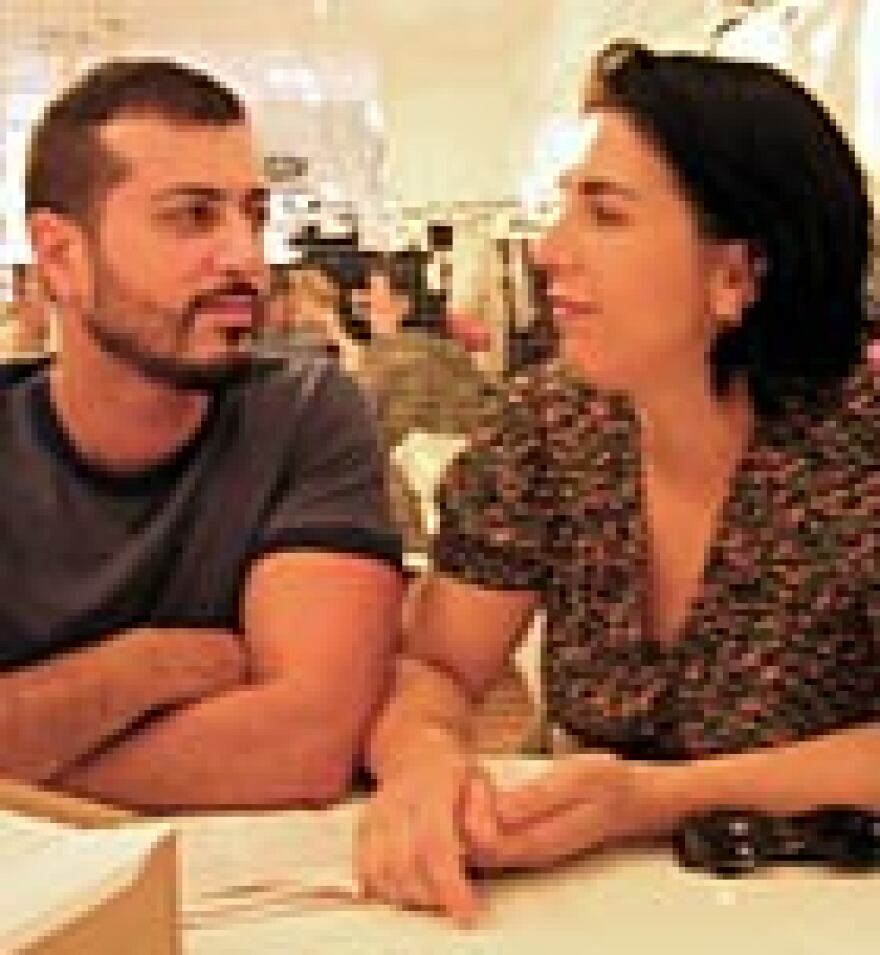
The music playing as fashion models strut down the runway can be as important as the clothes they're wearing. The THUMP, THUMP, THUMP in the background often conveys as much meaning as the cut or color of a dress. As part of a Morning Edition series on the fashion industry, NPR's Neda Ulaby looks behind the scenes at the process of building the sound of a runway show.
Lynn Yaeger, style critic for the Village Voice, has sat through hundreds of hours of fashion shows. She often finds herself more fascinated by the sounds of the runway than the clothes parading down it. That's because runway music helps her tune in to the philosophy and aesthetics of a designer.
"It's like the function of film music," Yaeger says. "It's to set this tone at this show, to give all kinds of clues as to how designer thinks of him or herself and the clothes that they're putting on. It's sort of another clue as to sensibility that they would like you to partake in by buying their clothes."
Some models prefer certain types of music. "Models like the thick, thumpy beat of house music because it's nearly impossible to mess up the rhythm," Ulaby says. "That's a real issue for extremely young women in extremely uncomfortable shoes."
Narelle Payne, a model from Australia, says music boosts her confidence. "Imagine walking out in front of a few hundred people barely dressed with no music. It just couldn't be done."
Roger Padilha, creative director of MAO Public Relations, a firm producing 14 shows for this year's Fashion Week.
One professional headache, Padilha says, are designers who fancy themselves deejays. "They'll come up with some ideas and we'll say, 'That's a great idea, but Versace used it last season. What's your next idea?'"
Padilha is working with designer Liz Collins on her show along with deejay Wilson Chan, who has handled music for Anne Klein, Yves Saint Laurent and Gucci. The entire concept for Collins' spring collection materialized from a tune Padilha discovered online -- a "housified or funkified" version of the "Wonder Woman" theme.
As soon as she heard the music, Collins said, she envisioned slinky suits and embroidered bustiers sprinkled with stars.
Chan says his job is "to take this idea and make it sound a lot more glamorous," but not "kitschy or campy."
As Ulaby reports, "the superhero symbolizes the way Liz Collins wants people to think about her clothes -- feminine but aggressive, fun but also goddessey. And they need to get it right. The stakes are high at Fashion Week. There's an influential audience of critics and buyers to wow in less than 20 minutes."
Copyright 2022 NPR. To see more, visit https://www.npr.org.



